 As residents across flood-stricken Colorado begin the task of cleaning up damaged homes and in some cases rebuilding them on now-empty lots, many have navigate to these guys and made calls to various utilities, trash collectors, and service providers to hold off on further bills for services they cannot use. The electric, telephone, and trash hauling companies were all understanding and reassuring. DirecTV and AT&T were not. They want their money — one for the value of satellite equipment that may have since floated into New Mexico or Kansas, the other for fees incurred from excessive texting, talking, or data usage.
As residents across flood-stricken Colorado begin the task of cleaning up damaged homes and in some cases rebuilding them on now-empty lots, many have navigate to these guys and made calls to various utilities, trash collectors, and service providers to hold off on further bills for services they cannot use. The electric, telephone, and trash hauling companies were all understanding and reassuring. DirecTV and AT&T were not. They want their money — one for the value of satellite equipment that may have since floated into New Mexico or Kansas, the other for fees incurred from excessive texting, talking, or data usage.
DirecTV was willing to settle with Jenny, a resident living outside of Boulder whose first floor was inundated with waves of water which swept her personal property out the rear door, if she was willing to charge $400 on her Visa credit card today for one lost satellite dish and two receivers. Otherwise, “collection activity will begin that could harm your credit.”
Jamestown resident Juliette Leon Bartsch is contending with 10 feet of mud, her husband’s car smashed against the house, and AT&T’s nagging fees for excessive texting.
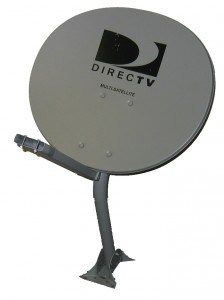
That will be $400 please. Call your insurance company. We want to get paid.
Bartsch says AT&T has been pounding her phone with text messages telling her she will be paying AT&T’s regular prices of 20 cents per text, 30 cents for any text with attached photos, because she exceeded her allowance sending and receiving updates about the status of her home to worried friends and family. Her idea was to keep the phone lines clear for emergency personnel contending with serious telecom outages. AT&T’s idea was to rake in 20 cents for a short message that costs them virtually nothing to handle. Sending text messages is the preferred method of communicating in a disaster area over a wireless network and it turns out to be mighty profitable for AT&T as well.
Bartsch told the Denver Post AT&T store employees were “completely unhelpful” to her plight. AT&T also never misses an opportunity to upsell a traumatized customer to a more profitable service plan, even when that customer is a disaster victim.
After waiting around for 30 minutes, an AT&T employee rudely grabbed her phone in what Bartsch interpreted as a demand to “prove” her claims of disaster-related texting. After scrolling through the messages, all the employee was willing to offer was a paid upgrade to a more expensive texting plan to cover current and future text messages.
After contacted by the newspaper, AT&T changed its tune.
“As is our routine in an emergency, we began suspending collections calls to impacted customers last Friday, and we will not be billing those customers for flood-related overages to their wireless-minute or text-message plans,” a company spokeswoman said in a statement. “AT&T has reached out to our customers to clear the flood overage charges, and we apologize for the oversight and inconvenience.”
Bartsch has not heard back from AT&T to find out if her bill will be, in fact, credited for the charges.
DirecTV has a less opaque policy for disaster victims published on its website. Getting the company to follow it is another matter.
Does DIRECTV provide aid for customers impacted by natural disasters?
DIRECTV has policies in place to assist customers who are impacted by natural disasters. If you live in a declared disaster area, we’ll work with you to find a solution that best fits your needs. Options available include:
- Account cancellation – If service cannot be restored at your home due to the damage from a natural disaster, we will cancel your account, and waive any fees associated with the inability to return equipment, along with any remaining agreement on the account.
- Account suspension – If you are without power for an extended period, we will suspend your account until power and services can be restored.
- No-cost service calls – If service can be restored at your home, we will send a technician at no cost to ensure the dish is properly aligned and to fix any technical issues.
- Equipment – If your equipment was damaged by a natural disaster, we will waive equipment replacement costs if you continue your DIRECTV service.
If you are a customer that has been affected, please contact 1-800-531-5000 so we can remedy your situation immediately.

You are over your texting limit.
Jenny, a Stop the Cap! reader, heard a completely different story from DirecTV.
“They were adamant, they really wanted to get paid either by me or the insurance company,” Jenny writes. “They even wanted to know the name of my carrier and my insurance policy number, which I refused to give them.”
This isn’t the first time DirecTV has ignored its disaster policy in Colorado. During this summer’s wildfires, fire victims were treated to similar demands for compensation.
Jeremy Beach’s Black Forest home burned to the ground and melted his satellite dish and reduced his DirecTV receivers to charred boxes. Then came DirecTV’s demand for cash.
“I couldn’t believe it,” he told the newspaper. “I had lost everything and they acted like they could care less.”
Even more incredible, a DirecTV spokesperson told the newspaper it was ignoring its disaster assistance policy because “most people’s insurance would cover the cost of its equipment.”
That is the same response Beach received. He hung up on the representative making the demand for payment.
 The Weather Channel has been removed from DirecTV’s lineup and replaced with WeatherNation, a much-smaller channel based in St. Paul, Minn., because the popular weather network reportedly sought a $0.01 monthly rate increase.
The Weather Channel has been removed from DirecTV’s lineup and replaced with WeatherNation, a much-smaller channel based in St. Paul, Minn., because the popular weather network reportedly sought a $0.01 monthly rate increase. The Weather Channel has launched a campaign to restore the network that carries the impression DirecTV does not care about the safety of their customers. The Weather Channel executives have stated their severe weather coverage is unparalleled and would leave satellite dish customers in rural areas without important information about dangerous weather.
The Weather Channel has launched a campaign to restore the network that carries the impression DirecTV does not care about the safety of their customers. The Weather Channel executives have stated their severe weather coverage is unparalleled and would leave satellite dish customers in rural areas without important information about dangerous weather.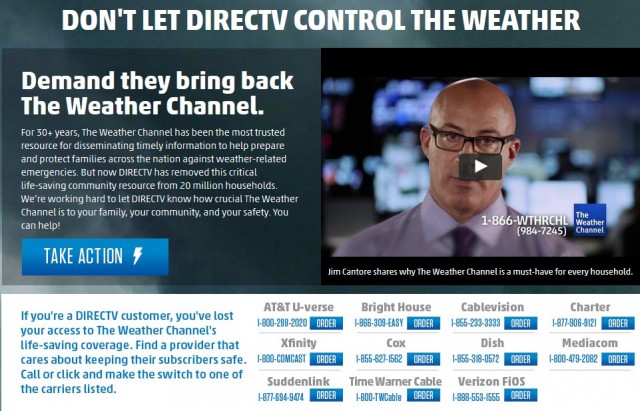


 Subscribe
Subscribe Two years after energy conservation groups revealed many television set-top boxes use almost as much electricity as a typical refrigerator, a voluntary agreement has been reached to cut the energy use of the devices 10-45 percent by 2017.
Two years after energy conservation groups revealed many television set-top boxes use almost as much electricity as a typical refrigerator, a voluntary agreement has been reached to cut the energy use of the devices 10-45 percent by 2017.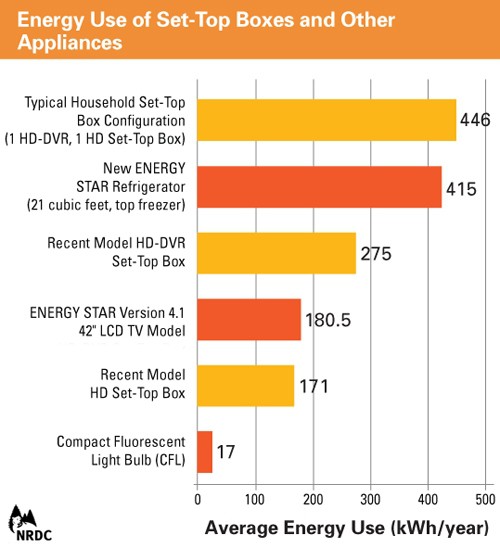
 As residents across flood-stricken Colorado begin the task of cleaning up damaged homes and in some cases rebuilding them on now-empty lots, many have
As residents across flood-stricken Colorado begin the task of cleaning up damaged homes and in some cases rebuilding them on now-empty lots, many have 


 Sure enough, Robert Mercer, a DirecTV spokesman, explained the satellite provider pulls a credit report on every potential customer to determine their financial viability. DirecTV doesn’t want deadbeat customers, not after spending close to $900 to install satellite television in the average home.
Sure enough, Robert Mercer, a DirecTV spokesman, explained the satellite provider pulls a credit report on every potential customer to determine their financial viability. DirecTV doesn’t want deadbeat customers, not after spending close to $900 to install satellite television in the average home. Time Warner Cable won’t engage in an expensive bidding war for ownership of Hulu so it is trying to convince the online video venture’s current owners not to sell.
Time Warner Cable won’t engage in an expensive bidding war for ownership of Hulu so it is trying to convince the online video venture’s current owners not to sell.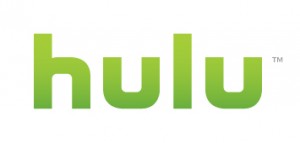 Hulu’s new owners could continue to offer the service much the same way it is provided today, with a free and pay version. But most expect the new owners will throw up a programming “pay wall,” requiring users to authenticate themselves as a pay television customer before they can watch Hulu programming. If Time Warner Cable acquired a minority interest and the current owners stayed in place, Time Warner Cable TV customers could benefit from free access to certain premium Hulu content, now sold to others for $8 a month. That premium content would presumably be available to U-verse customers if AT&T emerges the top bidder, or DirecTV could offer Hulu to satellite subscribers to better compete with cable companies’ on-demand offerings.
Hulu’s new owners could continue to offer the service much the same way it is provided today, with a free and pay version. But most expect the new owners will throw up a programming “pay wall,” requiring users to authenticate themselves as a pay television customer before they can watch Hulu programming. If Time Warner Cable acquired a minority interest and the current owners stayed in place, Time Warner Cable TV customers could benefit from free access to certain premium Hulu content, now sold to others for $8 a month. That premium content would presumably be available to U-verse customers if AT&T emerges the top bidder, or DirecTV could offer Hulu to satellite subscribers to better compete with cable companies’ on-demand offerings.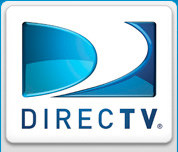 The Los Angeles Times reports that pay TV distributors are in a rush to make deals, not only to offer more viewing options for customers, but to potentially get rid of expensive and cumbersome set-top boxes.
The Los Angeles Times reports that pay TV distributors are in a rush to make deals, not only to offer more viewing options for customers, but to potentially get rid of expensive and cumbersome set-top boxes.